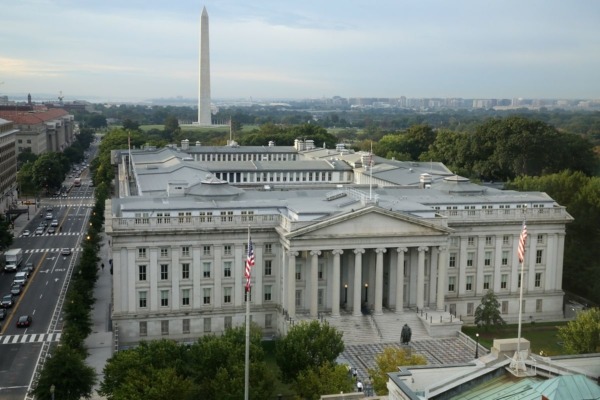Businesses that accepted Paycheck Protection Program (PPP) funds of less than $2 million will be assumed to have performed the required certification concerning the necessity of their loan requests in good faith, according to guidance posted by the U.S. Small Business Administration (SBA) on Wednesday, May 13th, 2020.
The guidance, provided as Question 46 in Treasury’s PPP FAQ, states that borrowers with loans of more than $2 million may still have an adequate basis for making the required good-faith certification, based on their individual circumstances and the language of the certification and SBA guidance.
“Any borrower that, together with its affiliates, received PPP loans with an original principal amount of less than $2 million will be deemed to have made the required certification concerning the necessity of the loan request in good faith.”
The forgivable loans were designed to help employers keep their employees paid and keep their businesses from succumbing to the economic hardships created by the coronavirus pandemic. An eligible recipient of a covered loan can receive forgiveness of indebtedness on the loan in an amount equal to the sum of payments made for the following expenses (subject to limitations) during the eight-week covered period beginning on the covered loan’s origination date: (1) payroll costs; (2) payment of interest on any covered mortgage obligation; (3) payment on any covered rent obligation; and (4) any covered utility payment. Section 1106(i) excludes from gross income any amount forgiven under the PPP.
On April 28, Treasury Secretary Steven Mnuchin and SBA Administrator Jovita Carranza announced that the SBA would review all PPP loans in excess of $2 million to make sure borrowers’ self-certification for the loans was appropriate.
The Treasury Department previously has noted that PPP borrowers had to certify to the Small Business Administration that the current economic uncertainty made their loan request necessary to support ongoing operations. It has said that it’s “unlikely that a public company with substantial market value and access to capital markets will be able to make the required certification in good faith.”
Such warnings have led at least 58 public companies to return PPP loans worth about $488 million as of Thursday morning. Borrowers face a deadline of today for giving back their forgivable loans.
About half of the roughly 400 PPP loans given to publicly traded enterprises were for less than $2 million, according to FactSquared’s data. The updated guidance suggests those loans don’t need to be returned.
A safe harbor for loans under $2 million “is appropriate because borrowers with loans below this threshold are generally less likely to have had access to adequate sources of liquidity in the current economic environment than borrowers that obtained larger loans,” the guidance document said.
The SBA said the safe harbor will promote economic certainty for PPP borrowers with limited resources as they work to retain and rehire employees. The $2 million threshold also will help the SBA conserve its resources and focus its reviews on larger loans.
If the SBA determines during its review that a borrower lacked an adequate basis for certifying the necessity of its loan, the SBA will seek repayment of the outstanding PPP loan balance and inform the lender that the borrower is not eligible for loan forgiveness. The SBA will not pursue administrative enforcement or referrals to other agencies if the borrower repays the loan after receiving notification from the SBA.
Recent Posts
The U.S. Department of Labor Announces Proposed Rule To Protect Indoor, Outdoor Workers From Extreme Heat
The U.S. Department of Labor has proposed a new rule aimed at protecting workers from extreme heat hazards. This initiative seeks to safeguard approximately 36 [...]
Supreme Court Overturns Chevron Deference: What It Means for Workplace Safety and Regulation
The landscape of federal regulation is set for a seismic shift following a recent Supreme Court decision. On June 28, in Loper Bright Enterprises, et [...]
Navigating the Compliance Maze: How NARFA Simplifies Employee Benefits for Automotive and Trade Industries
In today's complex regulatory environment, businesses in the automotive, roads, fuel, and related industries face unprecedented challenges in managing employee benefits. Recent studies show that [...]




